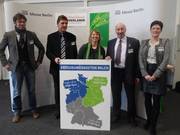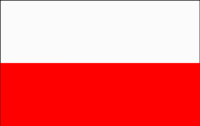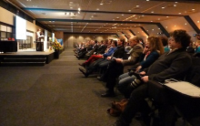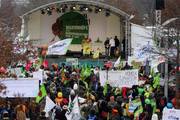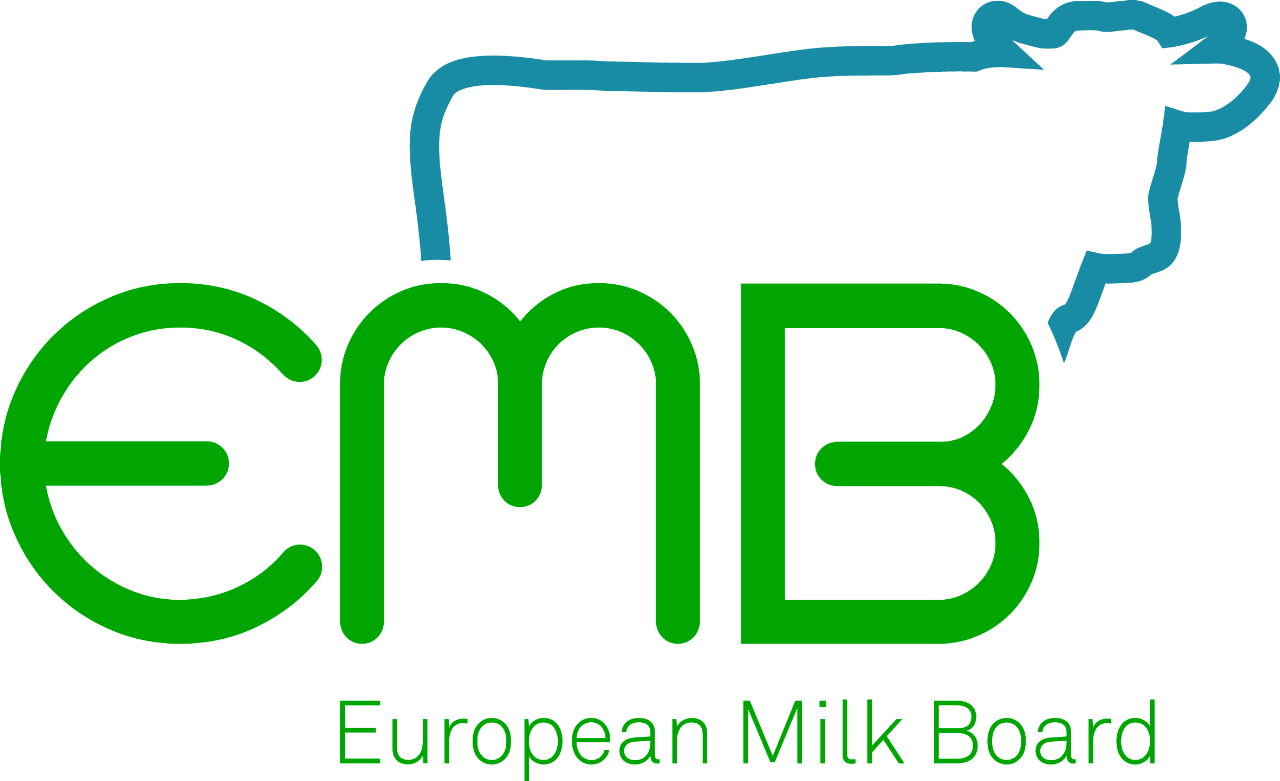EMB Newsletter February 2013
Newsletter as PDF
Contact
European Milk Board
Bahnhofstr. 31
D-59065 Hamm
Phone: 0049/2381/4360495
Fax: 0049/2381/4361153
E-Mail: office@europeanmilkboard.org
Website: http://www.europeanmilkboard.org
Newsletter as PDF
Contact
EMB - European Milk Board asbl
Rue de la Loi 155
B-1040 Bruxelles
Phone: +32 - 2808 - 1935
Fax: +32 - 2808 - 8265
Dear Dairy Farmers and Interested Parties,
A new year has begun. A year of key decisions. Our overriding demand for flexible supply management adjusted to the European milk markets by an EU monitoring agency is still at the top of the agenda. Unfortunately the majority of politicians on the European Parliament’s Agricultural Committee still oppose sustainable regulation of milk production after 2015, although some of its members are now reconsidering their position.
Against this background, the positive outcome of the Agriculture Committee’s vote in late January on a voluntary reduction in production with financial compensation can be regarded as a partial success. However, the stipulations on the actual implementation are far from satisfactory and still have to be substantially improved.
Another positive sign is that altogether the group of policy-makers outside the Agriculture Committee who recognise the importance of our concerns and support us in our efforts is becoming larger and larger. So intensive lobbying of precisely these decision-makers in Brussels and in their countries of origin is all the more crucial.
How important people in general now consider our concerns could be seen at the major demonstration on 19 January 2013 during International Green Week in Berlin. Some 25,000 people took to the streets in the bitter cold to call for an immediate change to the agricultural policy. We milk producers wish to say a huge “Thanks” for that support!
How drastic the situation has become for milk producers is shown by the latest figures from the full-cost study of milk production in Germany presented during Green Week by EMB and the German Milch Board. In October 2012, the costs of producing milk were 50 eurocents per litre of milk in most parts of Germany. The complete study can be downloaded from the EMB homepage.
Whatever happens, 2013 will be a very important year for us milk producers. So I wish us all a great deal of strength and determination to drive home our demands and thus set the right course for the period after 2015.
Erna Feldhofer (Member of the Board of the EMB and spokesperson of IG Milch)
Vote on EU Common organisation of agricultural markets disappoints European milk producers
The EMB has published the following press release on the occasion of the voting in the European Parliament’s Agricultural Committee on the report regarding the Single CMO regulation:
(Brussels, 24 January 2013) Yesterday the members of the European Parliament's Agricultural Committee voted on the report on the reform of the Common organisation of agricultural markets in the EU. The Committee voted in favour of proposals such as the introduction of a voluntary supply constraint mechanism or the setting up of a European Food Price Monitoring Tool. But unfortunately members of cooperatives will still not be able to claim information on the milk price before delivery. Moreover, the insufficient pooling limits for producer organisations (3,5 % on European and 33 % on national level) were confirmed.
German milk production costs well over 40 cents a kilo
A scientific study jointly presented by the MEG Milch Board and the EMB shows production costs in the dairy sector, to be updated quarterly.
(Berlin, 17.1.2013) It had been long overdue: a reliable, ongoing calculation of production costs in the dairy sector. One that takes into account the working hours of the farm managers and their family members, differentiated by region, but at the same time produces figures that are comparable across the EU. The study, commissioned in late 2011 by the European Milk Board (EMB) and the MEG Milch Board from the Farm Economics and Rural Studies Office (BAL), calculated the production costs nationwide to satisfy these terms of reference. It is based firstly on data provided by the European Commission’s Farm Accountancy Data Network (FADN).
Overview of economic situation in the Polish milk sector
Poland has a great potential for milk production and strives to make good use of it. The share of the dairy sector in the total output of the agricultural sector constitutes 15.6%. Since Poland’s accession to the European Union, both individual farms as well as the whole dairy sector have been in a process of restructuring, consolidation and modernisation.
In 2012 the number of dairy cows amounted to 2.4 million head (a decrease of 11% since 2004). Despite the decline in cow population, there is a tendency for milk production to increase – to about 12.4 million tons in 2012. The decrease in the number of milk cows is compensated by an increase in productivity, which has risen by 22% in the last 8 years.
BDM symposium: realistic cost approach required in milk production
On 19 January 2013, some 1,200 milk producers from all over Germany took up the invitation from the German Dairy Farmers’ Association (BDM) – one of the two German member organisations of the EMB – to attend a symposium during International Green Week in Berlin. The focus of this year’s symposium was on the question “Covering full costs in milk production: fiction or necessity?”.
Several competent speakers shed light on the issue from different angles. Dr. Karin Jürgens from the Office of Rural Sociology and Agriculture (BAL) presented the procedure developed on behalf of the European Milk Board (EMB) and the MEG Milch Board for working out the realistic costs of milk production and the results of this study.
25,000 people demonstrate in Berlin for a better agricultural policy!
About 25,000 people demonstrated in the German capital of Berlin on 19 January 2013 for an ecological and social reform of the agricultural policy. Some 600 to 800 of them were members of the BDM – one of the two EMB member organisations in Germany. With banners saying “We’ve had enough! Good food. Good agriculture. Now!” for the third time in succession consumers, farmers, activists, beekeepers and many more marched from Berlin Central Station through the government quarter to the official residence of the German Federal Chancellor Angela Merkel.
EMB Calendar
Please find below some of the most important events in February 2013:
15.02.: Lecture at the trade fair BioFach in Nürnberg, Germany
19.02.: Meeting with EU Commissioner for Agriculture Dacian Ciolos in Brussels
19./20.02.: Meeting of the EMB Executive Committee in Brussels
Full Texts
Vote on EU Common organisation of agricultural markets disappoints European milk producers
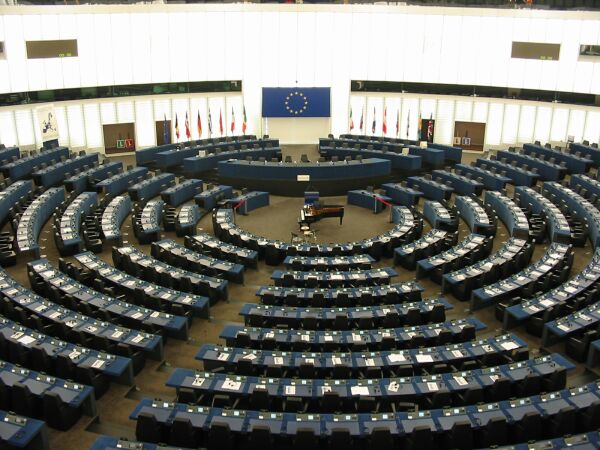
The EMB has published the following press release on the occasion of the voting in the European Parliament’s Agricultural Committee on the report regarding the Single CMO regulation:
(Brussels, 24 January 2013) Yesterday the members of the European Parliament's Agricultural Committee voted on the report on the reform of the Common organisation of agricultural markets in the EU. The Committee voted in favour of proposals such as the introduction of a voluntary supply constraint mechanism or the setting up of a European Food Price Monitoring Tool. But unfortunately members of cooperatives will still not be able to claim information on the milk price before delivery. Moreover, the insufficient pooling limits for producer organisations (3,5 % on European and 33 % on national level) were confirmed.
After the vote, Romuald Schaber, President of the European Milk Board (EMB), the European umbrella organisation of milk producers' associations, stated: "Although a few promising thoughts like a voluntary supply constraint were adopted, the Committee did not grasp the opportunity to take decisive steps towards limiting the overproduction on European milk markets. In order to do this, it would have been necessary to put in place permanent and flexible mechanisms to regulate the market, like for example a European Monitoring Agency. This is the only way to guarantee milk producers a decent income in the future, thanks to cost-covering milk prices. A mere monitoring of the market without an active regulation of produced volumes by the European Food Price Monitoring Tool is not enough."
Milk producers in Europe now hope that the vote in the European Parliament's plenary session scheduled for March 2013 will bring a turn in the right direction.
EMB press release

